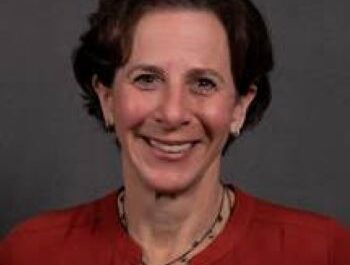ICFA Lifetime Achievement Award winner and Summer Classics founder Bew White is the subject of a new biography by Christopher Taunton. The volume, ‘A Summer Classic: The Bew White Story,’ delivers a detailed examination of White’s childhood, college years, early professional life, and the successes and failures that got him to where he is today.
At just 28 years old, White left his job at his family-owned business, Avondale Mills, and started a sales representative company in 1978 called Vista Corporation, specializing in selling outdoor furniture. In 1987, he started multiple companies in an effort to expand from selling on the road to building a national brand.
“I don’t think most people realize this, but I was a sales rep from 1979 to 1990,” White told Casual News Now. “And was working in a very large territory Alabama Georgia Tennessee north and South Carolina Kentucky and part of Northern Florida. Because I was traveling so much I was never at home, and I was looking for a way to start a business because I realize the business was totally dependent on me and how much I sold every year. I was looking for something that wasn’t so dependent on just my efforts.
As a result, White started multiple companies, including one in the umbrella base business which was “pretty successful” another of those companies was the outdoor furniture brand Summer Classics, which was created around White’s thought of designing and manufacturing products that he would want for his own backyard. With a business model based on creating products that were consumer-driven, would stand the test of time, and would not go out of style, Summer Classics officially took off in 1987.
“By 1990, I decided to go off the road and concentrate on Summer Classics and close down all the other businesses that I had started,” he explains. “I believe the reason it was successful is that this was the business I knew. I was selling outdoor furniture at that particular market price. And I understood the competition and where the voids were.”
White says he isn’t sure there are a lot of successes in the book, but that there’ are tons of failures—which were all learning experiences. “I like to say I have an MBA in mistakes,” he says. “Hopefully I’ve learned from those and moved forward. The failures revolve around huge volume increases and the ability (or lack of) to finance those, as well as employee issues and supplier issues. But there are some funny stories in the book, and some difficult ones, too.”
In October of 2013, White, at the pinnacle of his career and success, found himself in the emergency room, fighting for his life. It was that moment when he thought his life would end that led him to want to share his story with the world.
“When I had an event back in 2013, but I got a signal in my brain that said, ‘write the book,’ and it was clear as a bell and loud,” he says. “I believe that signal came from God. The book sort of mimics the movie ‘It’s A Wonderful Life’, with the exception that I didn’t try to kill myself. But I did almost die. I want to help others understand that what they do now matters and that though it takes hard work and perseverance to achieve the goals you set out to achieve, it’s not impossible.
‘A Summer Classic’ delves into not just Bew’s personal life, but also into the decisions he made to grow his business.
“A lot is about all the support I receive from my family, particularly my wife, and all of the suppliers,” he says. “You need a lot of support when you’re trying to figure everything out. Praying seemed to help a lot. And I say seemed to… it actually was critical!”
The book walks the reader through some of the biggest events of the late 20th and early 21st centuries, including 9/11 and how Summer Classics managed to weather the recession of 2008.
As for defining success, White says there are six things for entrepreneurs: vision, passion, risk-taking, drive, problem-solving, and responsibility.
“You must have all of those or it will not work,” he explains. “But in a nutshell, you’ve got to have a lot of great people in the right seats that believe in you and where you’re going. And be able to focus on where you want them to go. Culture is a religion, not a sermon!
For more information on the book, visit www.BewWhite.com
This story first appeared on sister site Casual News Now.




